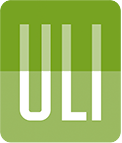Accelerate Learning through Job Assignments
Accelerate learning through job assignments includes the following individual approaches:
Challenging job assignments
Mentoring and sponsorship
Managers who coach and develop
Objective hiring, performance reviews, and promotion
Women in the field believe that having visible and challenging job assignments is the top priority in enabling career advancement. These assignments are the best possible place to learn, test, and refine new capabilities while producing results.
There are two ways in which a woman can take on more visible assignments: she can remain in her current position while taking on new projects or responsibilities, or she can move to a permanent new position by way of a promotion or lateral transfer.
Across the board, women reported that these new and challenging assignments, ranging from stepping in as interim CEO to working as a CEO’s right hand, gave them the opportunity to learn rapidly, demonstrate their skills, and earn more challenging assignments and promotions.
Some women said that obtaining a position with direct responsibility for profit and loss—sometimes referred to as being a “line leader” rather than staff—is most important in gaining credibility and preparing for a senior-level role.
What actions can leaders take to make these choice assignments available to both men and women and provide the challenge and support needed to accelerate learning and produce strong results?
A starting point is for leaders to scrutinize how they identify “go to” people for complex projects and tasks or to fill permanent positions. Everyone has the tendency to trust those who work, think, and look most like themselves, and all leaders need to find a way to check those unconscious biases. A key action senior-level sponsors can take is to advocate for a diverse group of strong candidates and challenge their peers to do the same. Objective promotion processes that establish clear criteria for advancement can help remove unconscious bias from the equation.
Objective hiring policies and practices can help ensure that a diverse group of individuals is available to be tapped for challenging assignments. The firms represented in the case studies accompanying this report all make an effort to include a diverse set of candidates when hiring and are clear that they then hire the most skilled person for the role according to the capabilities the role demands.
Assess Readiness
Leaders should be aware that men and women who are ready for challenging assignments and roles may present themselves quite differently—a general difference that organizations be aware of. Men who are eager to advance are more likely to be beating down their supervisor’s door, demanding they be given the choice project; in contrast, women who are just as skilled may be waiting to be asked and unsure whether they could even meet expectations.
During research for the case studies, senior leaders were asked whether they provide a different type of coaching to men versus women. A number of leaders at firms that excel at advancing women reflected that they sometimes did more to encourage women to step up to a new challenge.
The lesson for organizations is to recognize that women want to reach a high bar and produce outstanding results. As one woman said, “Don’t assume because a woman isn’t beating down your door that she is not ready and capable for the next juicy assignment.”
Consider Types of Assignments
Women in the field indicate that some assignments lead to greater growth and leadership development. It pays for leaders to consider both the needs of the business and the particular development strengths of the individual. Women described the following challenges as making the difference between an assignment being good and an assignment being great.
- Experiences that demand adjusting to a new context, such as starting work in a new city with a new team or different function; these provide opportunities to rapidly acquire knowledge and skills.
- Experiences that demand a shift in perspective, such as the transition from a role defined by linear thinking, such as a project manager, to a role requiring highly divergent thinking, such as developer; these were cited as pivotal in terms of growth.
Coach for Performance
WLI identified a number of considerations specific to women that managers who coach and develop direct reports should consider once an assignment is underway. “We expect our leaders to be demanding,” women taking part in the focus groups agreed. None of the women interviewed expressed a desire to be coddled. However, selecting competent women for new assignments and continuing to express confidence in their ability were frequently mentioned as a powerful combination by women who have been most successful.
It is essential that responsibilities taken on as part of an assignment be real because the fact that a project has consequences creates a sense of urgency and accountability for the person taking on that assignment.

